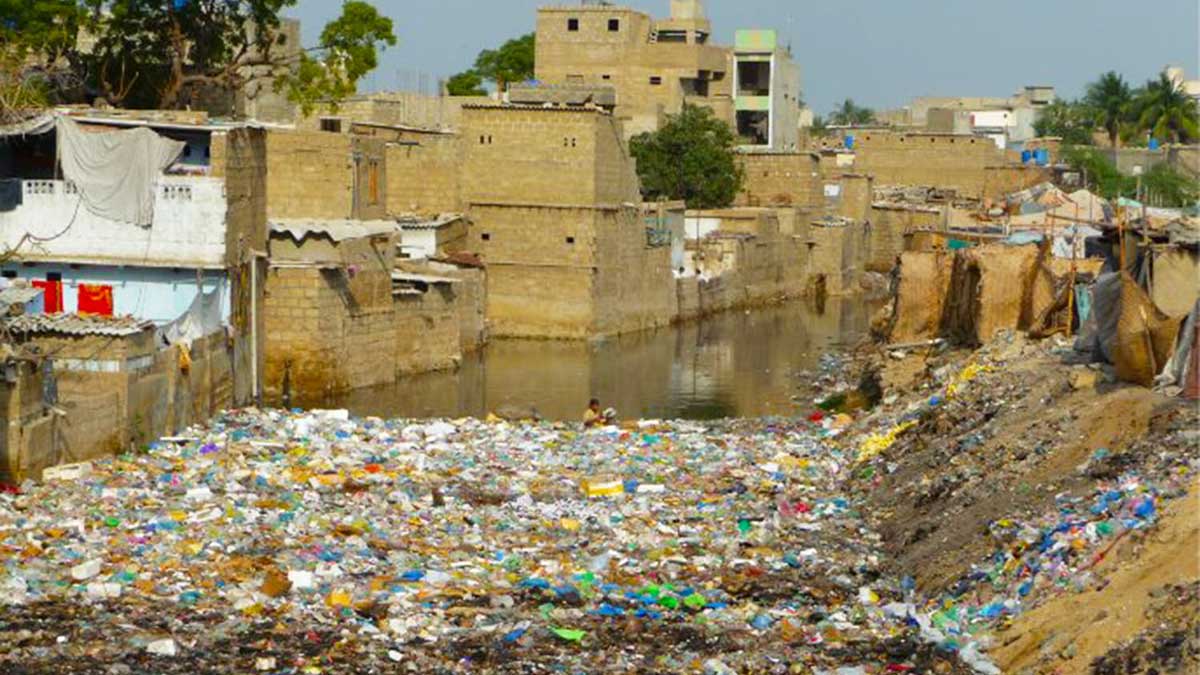Karachi’s prevailing insanitary conditions can complicate and aggravate the ongoing Covid-19 health crisis if immediate measures were not taken, warned experts.
On Wednesday, experts expressed concerns over the prevailing insanitary conditions in Karachi and warned that if measures were not taken to improve the standard of hygiene and sanitation in the metropolis, insanitary conditions may aggravate Covid-19 health crisis.
According to Dr Rafiq Khanani, a senior pathologist and president of the Infection Control Society of Pakistan, “Insanitary conditions help spread all kinds of viral and bacterial infections. And, if these infections combine [in patients], this could be disastrous in the current situation when we are facing a pandemic.”
Read more: Moveable public toilets set up in Lea Market, Jheel Park under ‘Saaf Bath’ initiative
Experts also urged the government to educate the general public on how to safely dispose of single-use face masks that could be releasing chemical pollutants and nanoplastic into the environment.
Dr Khanani further explained his point, he said the relationship of coronavirus with other infections such as the mosquito-borne dengue virus was important and also relevant as most cases of dengue were seen between August and November. These cases peaked in September.
He added that the combination of both these infections in patients would make diagnosis and treatment challenging as they presented with similar signs and symptoms (including high fever, body aches, nausea and vomiting).
“Besides, there is a threat of viral mutation. This happens with the use of medicines leading to development of a genetic pressure and also due to exchange of genetic material between viruses. Therefore, we can say that the coronavirus can take a more lethal form, nullifying all our efforts including vaccination,” he said.
Meanwhile, Dr Qaiser Sajjad of the Pakistan Medical Association said, “We request the government to dispose of garbage and sacrificial remains on an urgent basis. All civic agencies should at once initiate fumigation drives in their respective areas to overcome the spread of diseases,” said Dr Sajjad, while citing a study according to which a fly could carry about 100 organisms that caused gastrointestinal and eye infections.





















